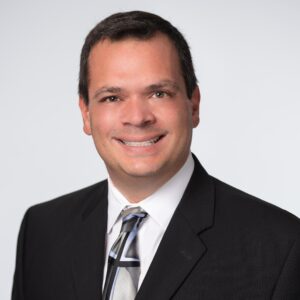False Claims Action
|
| By now everyone has heard the bad news: Skilled nursing facilities are yielding to legal settlements totaling hundreds of thousands of dollars, plus having federal government monitors planted for years in their buildings watching everything they do. These are the results of actions brought under a nearly 140-year-old federal law-the False Claims Act of 1865. The expenses of defending against them are so onerous that not one has yet gone to trial. The good news is that almost all of these actions thus far have been concentrated in the Philadelphia area, where U.S. Attorneys were the first to apply False Claims proceedings-originally designed for government military contractors- to Medicare/Medicaid transactions. Their theory is that any facility providing poor-quality care and applying for government reimbursement is making “false claims” that, under the law, are very heavily penalized. It’s only a legal theory, but for the past five years it’s worked, with a half-dozen Philadelphia facilities succumbing. More recently, a False Claims settlement in the Baltimore area indicated that the legal threat could spread to other areas of the country. What if it does? What if federal attorneys come knocking at your door? Better yet, how can you keep them away? |
| According to Mark H. Gallant, chair of the Health Law Department at the Philadelphia law firm of Cozen and O’Connor, there are ways to mitigate the disaster-and he knows whereof he speaks. A specialist in long-term care law, he defended a facility in which federal prosecutors, for the first time, voluntarily withdrew their monitors, at least somewhat easing the facility’s pain. Gallant also comes from a background that includes service “on the other side” as a senior counsel with the U.S. Department of Justice (DOJ) and as deputy chief counsel with the Health Care Financing Administration (HCFA). Most recently, he has represented the American Association of Homes and Services for the Aging (AAHSA) in recent Michigan and Illinois cases involving the legality of the state OBRA survey system (the latter of which saw the U.S. Supreme Court overturn a circuit court victory he had achieved). Gallant offered his perspective on the False Claims threat and its implications in an interview with Nursing Homes/Long Term Care Management. Editor Richard L. Peck. Peck: Why has so much of the False Claims action been concentrated thus far in the Philadelphia area? Gallant: Our local U.S. Attorney has been very creative. The concept of applying False Claims criteria to Medicare/Medicaid quality of care might be a bit of a legal stretch, but that doesn’t matter unless facilities are willing to spend the money to challenge this in court. So far, they haven’t been. This district made a name for itself nationally by achieving a $300 million False Claims settlement against SmithKline Beecham Pharmaceuticals (now GlaxoSmithKline). They pursue these cases with a sense of mission and are usually tougher than the Health Care Financing Administration (HCFA) in imposing best practices standards on SNFs that go beyond OBRA and its tags. Today the DOJ is even using the Civil Rights for Institutionalized Persons Act (CRIPA), originally intended for prison populations, in prosecuting facilities for blatant resident mistreatment and abuse. Peck: What happened with the recent False Claims action involving the Baltimore facility? Gallant: Basically they were hit with a demand for treble damages, which is the standard penalty; were assigned a federal monitor; and were eventually terminated by HCFA. Peck: What are some specific steps facilities should be contemplating to stay out of this sort of trouble? Gallant: Here is my short list: Pay attention to wound care; know your Braden Scale; and have good policies and procedures in place. Also, pay attention to issues involving nutrition, dehydration and fecal impaction. Usually the process starts with a poor survey involving one or more of these factors, with the results being forwarded to the U.S. Attorney’s office.As for another preventive factor, a belief that seems to have surfaced among federal prosecutors is that facility medical directors need a stronger hand. Federal prosecutors have been looking hard of late at processes involving physicians’ orders and follow-up to them, and general communication between physicians and the nursing staff. Peck: What are some organizational steps facilities might take to minimize risk? Gallant: A basic one is to perform regular self-audits of quality of care and of nursing policies and procedures. Also, you should invigorate, if necessary, your medical director, attending physicians and pharmacy director-get them actively involved in developing policies and procedures. It is worth taking these steps even after a bad survey because there is usually a gap between that event and the DOJ getting involved. Do all you can as soon as you can, because once the DOJ gets involved, they don’t like to leave. Peck: How was the facility you defended able to persuade federal prosecutors to withdraw their monitors? Gallant: We were able to convince them over a year and a half that the care provided and the mechanisms set up to govern it were sufficiently trustworthy. It was the only case I know of in which they’ve done this. But there was another important factor, and it is something I would advise other facilities caught in similar situations to do: Negotiate a False Claims settlement, if at all possible, as a contract rather than as a consent decree. Then, if there’s a disagreement over how things are going, DOJ has to sue the facility for breach of contract; otherwise, they can go for a contempt-of-court citation. This is really a tip for lawyers-and, at this stage, you definitely want a lawyer on board. Peck: What else might be negotiated? Gallant: The facility should never agree to provide a level of care that goes beyond professional standards and that it will not be able to meet, even though prosecutors might try to apply such standards. There shouldn’t be dual standards; compliance is already complicated enough. If you stumble over the special standards that U. S. Attorneys seek, they will take you away. For example, they might tell you in medical detail how to treat a seizure episode. You really can’t consent to taking professional discretion away from your physicians. Because of concerns like these, insisted to the prosecution that if they wished to apply special standards, the facility must be allowed to interpret them in its own language in regards to its own policies and procedures, so long as they were in basic accordance with OBRA regulations and tags. Further, if we complied with the special standards, this should be filed as an exhibit to the settlement decree, which-taking out the legalese-means that you’ve tried to meet the federal government halfway by developing a compliance plan, based on OBRA requirements, that you can in fact accomplish. As another example of how negotiation works, the facility was originally assigned a monitor who came from an acute care, tertiary hospital background. That individual’s clinical care expectations didn’t match up with the reality of a long-term care facility. We negotiated a replacement who had a long-term care background, which turned out to be one of the keys to this relatively successful resolution.Through it all, though, be humble. Fuming and stamping your feet will get you no where. Remember, sometimes it’s better to be a supplicant than to be right. Peck: How might facilities deal with the possibility of a qui tam investigation, i.e., one that is based on a sealed report from an inside person who, if the case is successfully prosecuted, shares in the proceeds? Gallant: Usually there are two types of employee who file a qui tam: someone who has a grudge, perhaps because of a firing, and someone who raises an issue in good conscience but ends up being ignored or, worse, slapped on the wrist. It’s important to send a strong message to your staff that you care about quality-of-care issues. Appoint a compliance officer who will listen to complaints and can truthfully offer staff protection against any possible retribution. And respond to what they say. Peck: How might staff be advised to behave if an investigation occurs? Gallant: You should be very careful with how you approach this because you want to avoid obstruction of justice. As I said before, you’ll want to have a knowledgeable lawyer aboard at this time who can advise you. Basically, though, staff should be truthful in their responses to investigators, but they should also keep their supervisors informed. Establish a chain of communication, so that staff will report on anything that’s been discussed and management has a chance to provide more details, if needed. Communication is the key to defense in this situation, just as it’s the key to avoiding the situation in the first place. NH |
I Advance Senior Care is the industry-leading source for practical, in-depth, business-building, and resident care information for owners, executives, administrators, and directors of nursing at assisted living communities, skilled nursing facilities, post-acute facilities, and continuing care retirement communities. The I Advance Senior Care editorial team and industry experts provide market analysis, strategic direction, policy commentary, clinical best-practices, business management, and technology breakthroughs.
I Advance Senior Care is part of the Institute for the Advancement of Senior Care and published by Plain-English Health Care.
Related Articles
Topics: Articles , Regulatory Compliance , Risk Management










